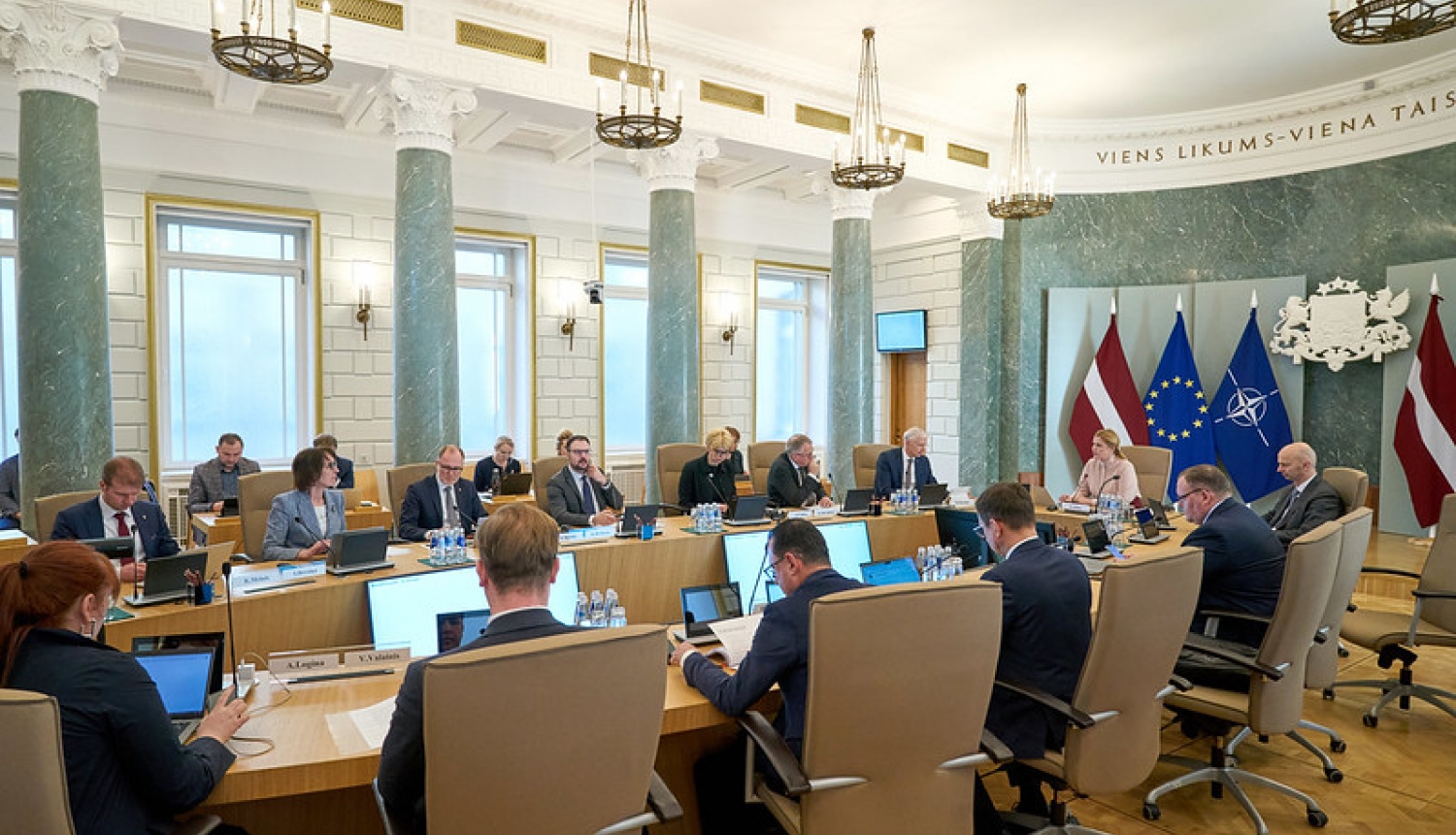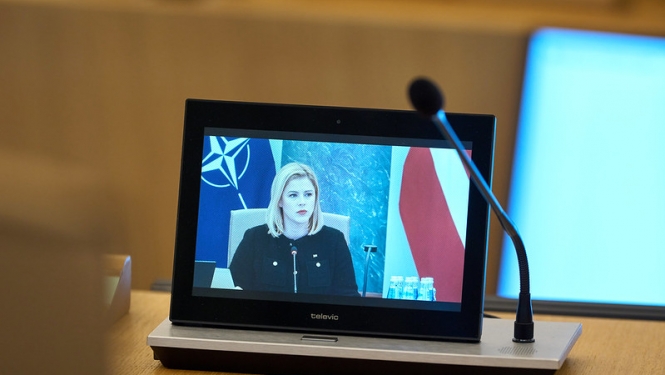Pursuant to the amendments to the Law on Agriculture and Rural Development, which were promulgated by the President of Latvia on 23 February 2024 and will enter into force on 8 March 2024, on Tuesday 5 March, the Government approved the Cabinet of Ministers' Regulations drafted by the Ministry of Agriculture, defining agricultural and feed products from Russia and Belarus, as well as from other third countries, which are banned for import into Latvia, if the products in question originate from Russia or Belarus.
Latvia, as a border state of Russia, is striving to disrupt economic ties with the aggressor country as soon as possible, and this initiative by Latvia to ban imports of agricultural and animal feed products from Russia and Belarus, as well as from other third countries, if the products in question originate from Russia or Belarus, is an additional element of the EU's common sanctions policy.
In the light of the above, decisions have been taken which reflect the common values of the state of Latvia, without prejudice to its development. The import ban applies to:
- all vegetables (products listed in Chapter 7, Title II, Part Two, Section II of Annex I to Regulation No 2658/87*)
- all fruit, berries and nuts (products listed in Chapter 8, Title II of Part Two of Annex I to Regulation No 2658/87);
- all cereals (products referred to in Chapter 10, Title II, Part Two of Annex I to Regulation No 2658/87), raw materials for animal feed and finished fodder (products referred to in Chapter 23, Title IV, Part Two of Annex I to Regulation No 2658/87).
The Ministry of Agriculture has also presented an informative report to the Government on imports of Russian agricultural and food products into the European Union (EU), in particular Latvia. In the informative report, the Ministry of Agriculture informs about the measures taken and calls for measures, including at EU level, to stop imports from Russia.
Two weeks after Russia launched its brutal war in Ukraine, the EU leaders took a strategic decision in their Versailles Declaration of 10-11 March 2022 "to phase out dependence on Russian imports of gas, oil and coal as soon as possible". This decision also identifies the food sector as one of the strategic sectors in which the EU's strategic dependence must be terminated. Since this decision, the EU has adopted 12 sanction packages, reducing dependence and restricting trade with Russia in many areas so that it cannot obtain funding for war through trade. In addition, for humanitarian reasons, the EU has not made imports of food and agricultural products from Russia subject to sanctions.
In 2023, the EU countries imported products from Russia worth a total of EUR 2.7 billion, an increase of 2% compared to 2021. The EU imports all types of food and agricultural products from Russia - fish, cereals, animal feed, dairy products, sugar confectionery, etc. These are products that the EU can provide itself, with much stricter production standards and higher quality.
Latvia, as a border country of Russia, is one of the Member States through which significant imports of Russian agricultural and food products enter the EU market. In 2023, Latvian imports accounted for 13% or EUR 355 million of the total value of EU imports from Russia, ranking Latvia 1st among the EU Member States. In 2023, 90% of the value of Latvian imports was accounted for by four product groups from Russia: 44% for animal feed, 24% for cereals, 14% for peas and 8% for rapeseed oil.
The informative report also provides analysis of the increase in imports of Russian grain not only in Latvia and the EU, but worldwide, as well as the turnover of grain and other agricultural products originating in Russia in Latvian ports, rail transport, and the potential impact of the ban of transit of grain and other agricultural products originating in Russia on the economy.
The Ministry of Agriculture believes that the dependence of all EU Member States, including Latvia, on Russian resources - fertilisers, animal feed, food and energy, must end. These commodities are not indispensable, and their procurement is financing Russia's war of aggression in Ukraine. The measures to be taken are set out in detail in the informative report and its Annex.
“Regulations on Agricultural and Feed Products Prohibited for Import into Latvia” will enter into force on 8 March and will be published in the official gazette Latvijas Vēstnesis, while the Government heard and took note of the informative report “On Imports of Russian Agricultural Products into Latvia” .




